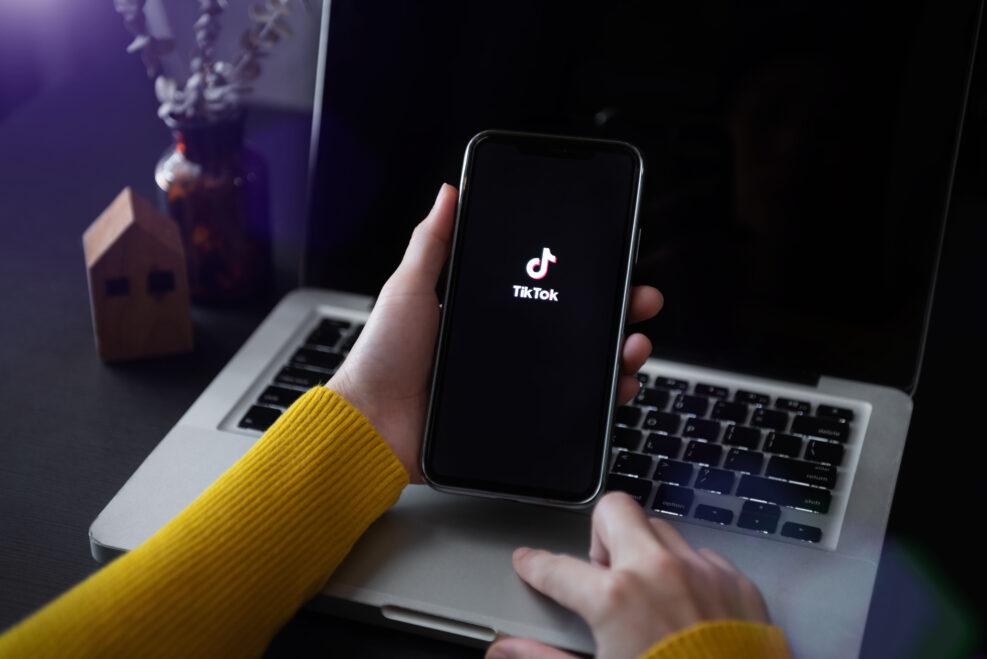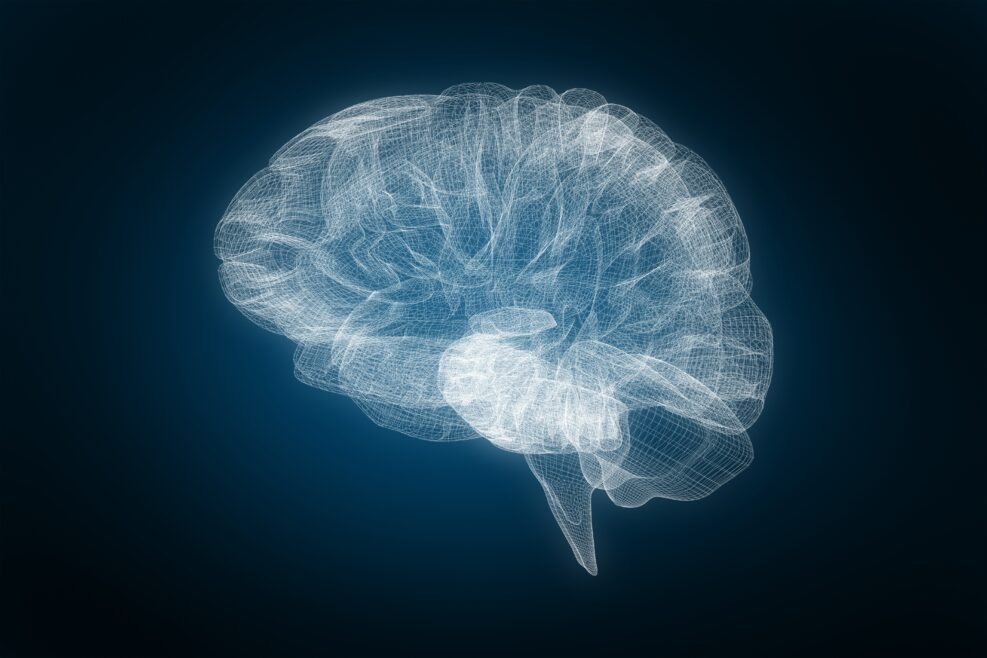
Tagaddiction


Too Much Focus on Mental Health?
Is our fixation on wellbeing making us miserable?“We have to deal with the cancer that is mental health.” So tweeted former presidential nominee Nikki Haley back in January. Most people knew what she meant, which was that we have to take mental health seriously and do our best to foster positive mental health. From the way she phrased it, though, you’re tempted to think that “mental health” itself is, well, what she said it is: a “cancer.” The emphasis on mental health and therapy is widespread. In many ways, it is good and proper to encourage people to be more open about their mental struggles and to get help for what they’re going through. The amount of trauma, abuse, and other mental disorders that people hide is Read More ›

Escaping the Dopamine Cartel
We can't even be bothered with "entertainment" anymore.
Andrew McDiarmid on Teens and Smartphones
We can mitigate the mental health crisis, but we have to act now.
You Can’t Always Be Happy
Our dopamine system both excites and tames pleasure
Is This a Moral Reckoning? 41 States Sue Meta for Knowingly Addicting Young Users
The lawsuit claims that Meta's platforms are harming its young users. The data backs it up.
Why You Should Read More Fiction
The mental benefits for reading good stories are many.When looking for “solutions” to today’s mental health crisis in the United States, particularly among the millions of men who are checking out of society, reading fiction may not immediately come to mind. However, a new article from Psychology Today argues that reading fiction is “essential” for today’s men. The author of the article, psychologist Jett Stone, focuses on men in part because today’s literary market is largely geared towards women, and fiction and femininity are often closely associated. Nonetheless, he believes that reading fiction can benefit both women and men. He writes, Recent research indicates that reading fiction fosters critical thinking by presenting ideas subtly and in more roundabout ways than nonfiction. One study of adolescents found that frequent fiction readers possessed more Read More ›

Cal Newport: Overstimulation Is Ruining Your Life
Turns out the solution is simple: don't use things that overstimulate you.
The Real Issue With the “New Drug”
Pornography is a drug, through and through, and is used mainly to alleviate negative emotions and meaninglessnessOne of the biggest harms of the Internet is online pornography. While prostitution (which has the root word porneia) has been around since the dawn of human history, never before has access to explicit content been so easy and varied. Today the porn industry rakes in around $100 million globally, with the U.S. making up $12-14 million of that revenue. According to this report, 40 million Americans regularly view pornography, and 25 percent of all Internet searches are porn-related. These stats are shocking, to say the least, but it begs the question of how we best understand and treat porn addiction in today’s context. While most of us would naturally assume such addiction is related to sexual impulses, “Dr. K,” Read More ›

TikTok is Storing Data in China, Contrary to Former Claims
TikTok CEO said user data isn't stored in China. Turns out it is.Many online creators and entrepreneurs give sensitive data to TikTok, the China-owned social media app, so they can do business on the platform. That includes social security numbers. TikTok CEO Shou Zi Chew told Congress earlier this year that users’ data was stored outside of China in places such as Virginia and Singapore. Apparently, however, that is an inaccurate claim. According to a report from Forbes, TikTok has indeed been storing sensitive data on Chinese servers, where employees there can access it. Alexandra S. Levine reports, A trove of records obtained by Forbes from multiple sources across different parts of the company reveals that highly sensitive financial and personal information about those prized users and third parties has been stored in China. Read More ›

TikToxic: The Popular App is Feeding Teens a “Diet of Darkness”
Apart from the debate over espionage and data privacy, TikTok is a highly addictive appTikTok has gained a fair bit of fierce criticism over the last few months; the China-owned social media app is the most popular on the market, with tens of millions of users and downloads. That includes, of course, teenagers. Apart from the debate over espionage and data privacy, TikTok is a highly addictive app. We covered more on that here, but recent studies show that it’s not just the amount of time spent on the app that is troubling, but the specific kinds of content young people are ingesting every day. Julie Jargon writes in the Wall Street Journal, Data privacy, though, might be less worrisome than the power of TikTok’s algorithm. Especially if you’re a parent. A recent study found that Read More ›

The Solution for Tech Addiction
Trail Life USA is a way to get guys off their phones and into the wildernessIn a recent Mind Matters podcast episode, host Robert J. Marks spoke with Kent Marks, former Boy Scout guide who now works with Trail Life USA. In the wake of Boy Scouts’ precipitous decline over the last decade, Trail Life offers boys the chance to get outside and go on wilderness adventures. This is a huge opportunity to help young men get off the screens and into the beauty of creation. Speaking about the gravity of the problem, Robert said, The impact of social media has just been terrible. Teenage suicides are up, depression rates are up. I think a third of all girls involved in social media have body image problems. And that’s terrible. These are the symptoms of Read More ›

Social Media’s Distortion of the Real World
Constant exposure to idealized online images impacts our expectations and worldviewHow does excessive social media use affect our perceptions of the real world? Writers Mark Miller and Ben White wrote a piece at Aeon on social media through the perspective of “predictive processing,” a term used in neuroscience and cognition. Predictive processing involves the brain’s capacity to predict error, danger, or some future event, and urge us to act accordingly. (That’s my basic, layman’s understanding of it, full disclosure!) White and Miller use temperature as an example, noting how the body may respond to a change of the environment by closing a window or grabbing a blanket to keep warm. Being able to respond appropriately to our surroundings depends on the accuracy of our mental model of the real world. Read More ›

In Defense of Daydreaming
Andrew McDiarmid encourages people to set aside their devices and embrace the discomfort of silenceAt the end of the day, do you ever feel like you’ve ingested so much information but have thought and contemplated so little? When do we take the time to simply be quiet and think? Discovery Institute’s Andrew McDiarmid encourages people to set aside their devices and embrace the discomfort of silence in a piece from The Epoch Times. He writes, A recent study reported in the Journal of Experimental Psychology suggests that the act of “just thinking” can be more rewarding than we might realize. The authors of the paper acknowledge that the ability to engage in internal thoughts without external stimulation is a unique characteristic in humans, yet we regularly underappreciate the benefits of doing so. This constant feed of Read More ›

The Asbury Revival and the Cure for TikTok
In the age of social media addiction, young people need to know they can be imperfect and yet lovedSocial media portrays a world where everybody is happy and having a good time. Everybody, of course, except for you. There must therefore be something wrong with you. You are a loser. Teenage boys without girlfriends feel like social freaks. One in three teenage girls who use social media suffers from body image issues. Social Media and Depression Young adults who use social media are three times as likely to suffer from depression. Depression can lead to suicide. According to the Centers for Disease Control and Prevention, female suicides aged 15-24 increased by 87 percent over the past 20 years and male suicides increased by 30 percent. The American Academy of Child & Adolescent Psychiatry says suicide is now Read More ›

Surgeon General Says 13 is Too Young to Have Social Media
The public official warned against the addictive nature of social media and how it affects children's self worthU.S. Surgeon General Vivek Murthy believes that age 13 is too young for children to start using social media, noting that their sense of self is still developing. Murthy gave his remarks on “CNN Newsroom,” saying, I, personally, based on the data I’ve seen, believe that 13 is too early … It’s a time where it’s really important for us to be thoughtful about what’s going into how they think about their own self-worth and their relationships and the skewed and often distorted environment of social media often does a disservice to many of those children.” Murthy’s remarks go hand in hand with a formidable body of research that shows the negative correlation between social media use and teens’ mental Read More ›

New Article Compares Big Tech to “Big Tobacco” of the ’70s
Like smoking in the 1970s — known to be dangerous yet poorly regulated — Big Tech is harming kids today yet is met with little intervention or pushbackIn a new article from Deseret News, Brad Wilcox and Riley Peterson equate Big Tech to “Big Tobacco.” They argue that the online world has the same dangers and negative effects as other drugs, and go on to cite alarming mental health data to back up their claims. Similar to how smoking was found to be dangerous in the 1970s and yet poorly regulated by the government, Big Tech is harming kids today yet is met with little intervention or pushback. They start with a powerful analogical anecdote, writing, Imagine if a man in a white panel van pulled up in your neighborhood and began enticing teens to look at pictures and videos featuring drug use, pornography and a range Read More ›

Girl Tragically Dies After Doing Horrific TikTok Challenge
The 12-year-old from Argentina isn't the only victim of the fatal TikTok "blackout challenge"A 12-year-old girl from Argentina died after trying the dangerous “choke challenge” on TikTok, per the New York Post. The girl, Milagros Soto, was found in a closet hanging from a makeshift noose on January 13th. Soto’s family members think she was bullied and challenged to perform the horrible online fad while at school. Soto isn’t the only casualty of the TikTok challenge, which involves asphyxiating oneself until passing out. It’s also only one of many “fatal fads” circulating the TikTok sphere. Also known as the “blackout challenge,” Tiktok users chase virality and clout by forcing themselves to pass out. In light of the tragic death, people are begging parents to prohibit TikTok from their children. Several Twitter users spoke Read More ›

The Practice of Medicine and Ongoing Issues with Opioid Addiction
How does our brain chemistry affect addiction? How has artificial intelligence changed medicine? Anesthesiologist Dr. Richard Hurley discusses opioid addiction from a medical perspective with host Dr. Robert J. Marks. Then, an anonymous guest details their own experience with opioids. Finally, Dr. Hurley discusses how computer algorithms have both improved and stifled the proper practice of medicine. Additional Resources

Good and Bad Algorithms in the Practice of Medicine
Computers and artificial intelligence are restricted to being algorithmic. If something is non-algorithmic, it is not computable. Creativity, nuance, and insight are human characteristics that are non-algorithmic. What happens if you remove those human characteristics from the practice of medicine? Robert J. Marks and Dr. Richard Hurley discuss how algorithms can help and harm the practice of medicine. Show Notes Read More ›